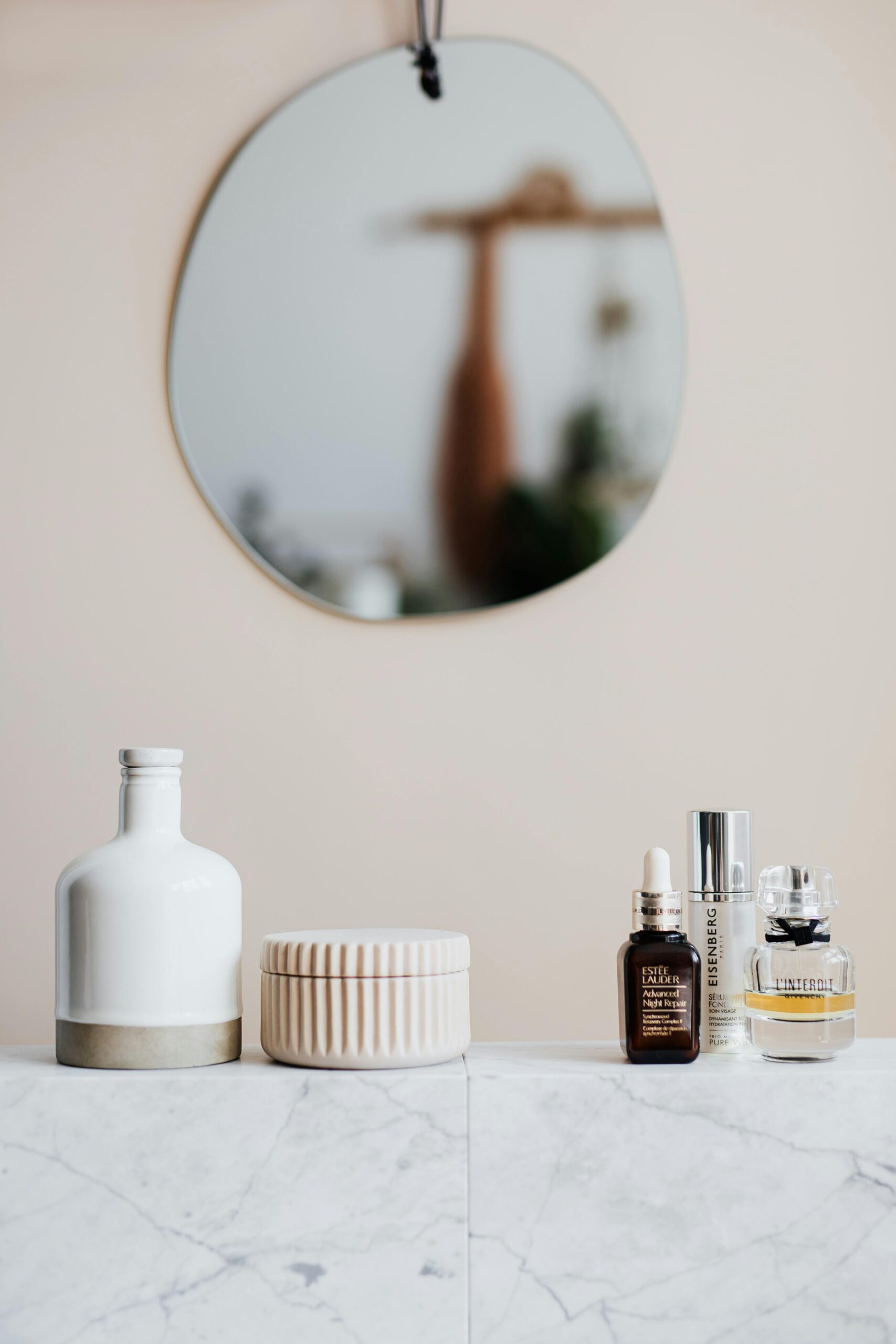Understanding your skin type is the cornerstone of an effective skincare regimen. Skin types can generally be categorised into five main categories: normal, oily, dry, combination, and sensitive. Normal skin is often characterised by a balanced level of moisture, with neither excessive oiliness nor dryness.
Oily skin, on the other hand, tends to produce an abundance of sebum, leading to a shiny appearance and a propensity for breakouts. Dry skin can feel tight and may exhibit flakiness or rough patches, while combination skin presents a unique challenge, displaying characteristics of both oily and dry skin in different areas of the face. Sensitive skin is particularly reactive, often responding adversely to various products or environmental factors, resulting in redness, irritation, or discomfort.
To accurately determine your skin type, it is advisable to observe how your skin behaves throughout the day. For instance, if you find that your forehead, nose, and chin—commonly referred to as the T-zone—become shiny while your cheeks remain dry, you likely have combination skin. Conversely, if your skin feels tight after cleansing and lacks a natural glow, you may be dealing with dryness.
It is also essential to consider external factors such as climate and lifestyle choices, as these can significantly influence your skin’s condition. By understanding your unique skin type, you can tailor your skincare routine to address specific concerns and enhance your overall complexion.
Summary
- Understanding your skin type is crucial for choosing the right skincare products and routine.
- Cleansing and exfoliating are essential steps in maintaining healthy and clear skin.
- Choosing the right moisturizer for your skin type can make a significant difference in its overall health and appearance.
- Incorporating serums and treatments targeted towards your specific skin concerns can enhance your skincare routine.
- Sun protection is non-negotiable for maintaining youthful and healthy skin.
Cleansing and Exfoliating
The Importance of Cleansing in Skincare
Cleansing is an indispensable step in any skincare routine, serving as the foundation upon which all other products build. A good cleanser removes dirt, oil, and impurities that accumulate on the skin’s surface throughout the day. It is crucial to select a cleanser that aligns with your skin type; for instance, gel-based cleansers are often more suitable for oily skin due to their ability to cut through excess sebum, while cream-based cleansers can provide the hydration that dry skin desperately needs.
Frequency of Cleansing and Its Impact
The frequency of cleansing also plays a vital role; while some may benefit from cleansing twice daily, others may find that once in the evening suffices. The key is to listen to your skin and adjust accordingly. Exfoliation complements cleansing by sloughing away dead skin cells that can lead to a dull complexion and clogged pores.
Types of Exfoliants and Their Benefits
There are two primary types of exfoliants: physical and chemical. Physical exfoliants involve scrubs or brushes that manually remove dead skin cells, while chemical exfoliants utilise acids or enzymes to dissolve them. For those with sensitive skin, chemical exfoliants may be a gentler option, as they can provide effective results without the potential for irritation associated with physical scrubs.
Striking a Balance with Exfoliation
However, it is essential to strike a balance; over-exfoliating can lead to compromised skin barriers and increased sensitivity. Therefore, incorporating exfoliation into your routine once or twice a week can yield significant benefits without overwhelming your skin.
Choosing the Right Moisturizer
Selecting the right moisturiser is paramount in maintaining healthy skin, as it helps to lock in hydration and create a protective barrier against environmental aggressors. The ideal moisturiser varies according to individual skin types; for instance, those with oily skin may prefer lightweight gel formulations that hydrate without adding excess oil, while individuals with dry skin might opt for richer creams that provide deep nourishment. Combination skin types can benefit from a balanced moisturiser that hydrates without overwhelming the oilier areas of the face.
It is also worth considering seasonal changes; during colder months, a thicker cream may be necessary to combat dryness caused by harsh weather conditions. In addition to considering texture and formulation, it is essential to pay attention to the ingredients within your moisturiser. Look for key components such as hyaluronic acid, which attracts moisture to the skin; ceramides that help restore the skin barrier; and antioxidants like vitamin C that protect against free radical damage.
For those with specific concerns such as acne or rosacea, there are targeted moisturisers available that contain active ingredients designed to address these issues without exacerbating them. Ultimately, finding the right moisturiser requires experimentation and attentiveness to how your skin responds over time.
Incorporating Serums and Treatments
Serums and treatments are powerful allies in any skincare arsenal, offering concentrated doses of active ingredients designed to target specific concerns such as pigmentation, fine lines, or acne. Unlike moisturisers that primarily focus on hydration, serums are formulated with smaller molecules that penetrate deeper into the skin for more effective results. When selecting a serum, it is crucial to identify your primary skincare goals; for instance, if you are looking to brighten your complexion, a serum containing vitamin C may be beneficial.
Alternatively, if you are concerned about signs of ageing, retinol-based serums can promote cell turnover and stimulate collagen production. Incorporating treatments into your routine can also enhance overall efficacy. Treatments such as masks or spot treatments can provide additional support for specific issues like breakouts or dullness.
However, it is essential to avoid overwhelming your skin with too many active ingredients at once; introducing new products gradually allows you to monitor how your skin reacts and prevents potential irritation. Additionally, layering products correctly is vital; typically, serums should be applied after cleansing and before moisturising to ensure optimal absorption. By thoughtfully integrating serums and treatments into your regimen, you can elevate your skincare routine and achieve more pronounced results.
Sun Protection
Sun protection is an often-overlooked yet critical component of any skincare routine. Ultraviolet (UV) rays from the sun can cause premature ageing, pigmentation issues, and even increase the risk of skin cancer. Therefore, incorporating a broad-spectrum sunscreen with an SPF of at least 30 into your daily regimen is essential—regardless of whether it is sunny outside or not.
UV rays can penetrate clouds and reflect off surfaces like water or snow, making it imperative to protect your skin year-round. Additionally, many moisturisers now include SPF as part of their formulation; however, it is advisable to apply a dedicated sunscreen for optimal protection. Applying sunscreen should be done generously and evenly across all exposed areas of the skin.
It is recommended to use about a shot glass worth for full-body coverage and reapply every two hours when outdoors or after swimming or sweating. Furthermore, seeking shade during peak sun hours—typically between 10 am and 4 pm—can provide additional protection against harmful rays. By prioritising sun protection in your skincare routine, you not only safeguard your skin’s health but also maintain its youthful appearance for years to come.
Hydration and Diet
Hydration: The Key to Radiant Skin
Drinking an adequate amount of water daily helps keep the skin hydrated from within, promoting elasticity and a radiant complexion. Dehydration can lead to dryness and exacerbate existing skin conditions such as eczema or psoriasis.
Nourishing Your Skin from the Inside Out
Diet also plays a crucial role in determining the condition of your skin. Consuming a balanced diet rich in fruits, vegetables, whole grains, lean proteins, and healthy fats provides essential nutrients that support skin function. Foods high in antioxidants—such as berries, nuts, and leafy greens—help combat oxidative stress caused by free radicals while omega-3 fatty acids found in fish and flaxseeds can help maintain the skin’s lipid barrier.
A Holistic Approach to Skincare
Conversely, excessive consumption of processed foods or sugars may lead to inflammation and breakouts. By adopting a holistic approach that combines proper hydration with a nutrient-dense diet, you can enhance your skincare efforts from both inside and out.
Consistency and Patience
In the realm of skincare, consistency is key; results do not materialise overnight but rather require dedication over time. Establishing a daily routine that incorporates cleansing, moisturising, sun protection, and targeted treatments will yield the best results when adhered to consistently. It is important to remember that each individual’s skin responds differently to products; what works wonders for one person may not have the same effect on another.
Therefore, patience is essential as you navigate through various products and routines in search of what suits your unique needs. Moreover, it is crucial not to become disheartened by minor setbacks along the way—such as breakouts or temporary irritation—as these are often part of the process when introducing new products or ingredients into your regimen. Allowing time for your skin to adjust is vital; many active ingredients require several weeks before their benefits become apparent.
Keeping a skincare journal can be helpful in tracking changes over time and identifying which products contribute positively to your routine. By embracing consistency and patience in your skincare journey, you will ultimately cultivate healthier skin that reflects your commitment to self-care.
If you’re keen on enhancing your skincare routine to achieve that radiant, dewy complexion, you might find it useful to explore the foundations of a solid skincare regimen. A highly recommended read is an article titled “How to Build a Perfect Skincare Routine,” which offers comprehensive guidance on establishing a skincare routine that caters to your specific skin needs. You can read the article by following this link: How to Build a Perfect Skincare Routine. This resource is invaluable for anyone looking to understand the essential steps and products that contribute to healthy, glowing skin.




